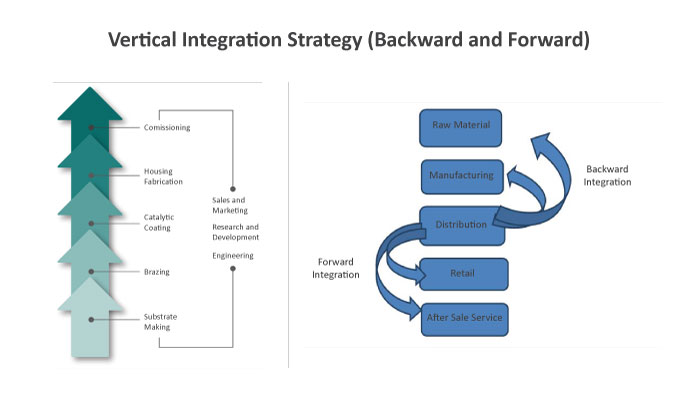Public Enterprise Forms in Management (4 Arrogant Forms)
Regarding the management of the public enterprise forms, no question arises in a socialist economy. The problem arises mainly in the field of a mixed economy. Any specific pattern of organization is controversial here. Thus, the prescription of any form of the organization is difficult and risky because the viability of public enterprises in the mixed-which, in turn, depends upon the country’s socio-economic condition.
Table of Contents
Management of Public Enterprises Forms
There are mentioned the management of public enterprise forms throughout the world. The most prominent public enterprise forms are four. Such as:-
- Department
- Public Corporation
- Joint Stock Company
- The Operating Contract
1. Department
The departmental management of public enterprise form is the traditional form of government intervention in the economy. An ordinary government department can at least keep going with the help of familiar unimaginative slow-moving routines. It may operate to the public in general, and it hints in particular, but it can keep going and does not collapse. But an enterprise cannot keep going in this way. It becomes a permanent liability to the state, but many enterprises’ essential purpose is not to be a liability but to be an asset. The basic two requirements for efficiency are:-
- Firstly, competent and responsible management is free to run an enterprise within limits drawn by the constitution, legislation, and government policy decisions;
- Secondly, this is the consequence of the first that the enterprise should possess personnel and financial systems that are sufficiently similar to those prevailing in the best-organized private enterprise not to place it at any significant disadvantage.
The traditional departmental management of public enterprise forms has some severe limitations. Some of its characteristics limit management flexibility and efficiency. The restrictions are:-
- Permanent staff is subject to rules and regulations applicable to civil servants, thereby preventing both promotion on merits and prompt disciplinary action where necessary.
- Cash receipts have to be put into a government account and cannot be taken out without special sanctions.
- The system of accounting purchase.
- The department methods of purchase of raw materials and sale production and so on.

2. Public Corporation
Sure, it isn’t easy to find any universal definition of a public corporation. In its general sense, a public corporation is a body corporate owned by the state commercial in nature. It creates an act of parliament or an instrument having the force of a lawyer charged with such functions given such power and subject to such controls as the said act or instrument may prescribe. It is merely a means to an end. According to Rangoon Seminara, the public corporation is:-
- Wholly owned by the state
- A legal entity
- Self-supporting and
- Subject to individual non-departmental controls over budgets, expenditures contracts, purchases, and personals.
- Not subject to the budget procedures, accounting, and audit laws applicable to non-corporate agencies.
- The recruitment policy is quite different from that of the civil servants.
The acts of parliament which create public corporations vary from county to county. In many countries, public corporations are often called ‘statutory authorities,’ and in African countries, they are called ‘Parastatles.’
3. Joint Stock Company
The Joint Stock Companies is a management of public enterprise form, generally established under a county’s regular company’s Act, which provides for the creation and operation of companies. The state companies are more convenient for a ‘mixed’ enterprise in which the state owns major shares, and private investors own the rest. The Joint Stock companies or the Stat companies don’t regard government corporations even though they are entirely state-owned. But they are similar to government corporations, except.
- Firstly, the government and the public, respectively, own the majority and minority shares.
- Companies are more autonomous than public corporations.
- The government expects to transfer its ownership to the private sector eventually.
- Financially independent.
- More independent from direct political control by the government or independent regulatory commission.
- Free from governmental recruitment policy.
There are some practical advantages to creating a company form of management than to creating a public corporation. A company can quickly register under the county’s company law, but the creation of any public corporation must require the enactment of the parliamentary mandate. Therefore to set up any public corporation, parliament must pass a law about this. However, regarding the state-owned companies, legislative control is clearly defined. Parliament controls the company through annual reports and auditing accounts, through qualified and independent persons, and the minister’s responsibilities are clearly defined in his capacity as a shareholder.
4. The Operating Contract
This management of public enterprise form is when the government runs the public enterprise through a contract with a private company or contractors. In this system, the company manages the federal enterprise, and the government pays them a fixed fee for their services based on the contracts signed between them. The contractor runs and manages the enterprise on behalf of the government. The operating contractor for running the enterprise maintains his recruitment policy, employs his personnel, and enjoys greater freedom in operating the enterprise.
There is a higher degree of flexibility found in the management of public enterprise by an operating contract. It provides greater flexibility in procurement, planning recruitment, and staffing than other management types.
This form of a contract of public enterprise is only used in a technical and limited sense. This type of contract is short-term, restricted, and routine in nature.
These are the management of public enterprise forms (Department, Public Corporation, Joint Stock Company, and Operating Contract), which are described here shortly for a better understanding of the management of public enterprise forms — and improving Strategic Management.
Final Line of Discussion
The result of the discussion on different forms of public enterprise management would likely lead to a better understanding of the diverse structures employed worldwide. This understanding can inform policymakers, managers, and stakeholders about the strengths and weaknesses of each form, allowing them to make informed decisions when establishing or reforming public enterprises. Additionally, it may facilitate knowledge sharing and exchange of best practices across countries and regions, leading to improved efficiency, accountability, and governance in public sector organizations.
FAQs
What is the oldest form of public enterprise?
The oldest form of public enterprise is likely the departmental form, where government agencies or ministries directly manage specific functions or services. This form has roots dating back centuries, with examples found in ancient civilizations where rulers appointed administrators to oversee various aspects of governance and public services.
What are the forms of public enterprise in Nigeria?
In Nigeria, common forms of public enterprise include:
1. State-owned enterprises (SOEs) operated directly by government agencies.
2. Public corporations established by law to provide specific goods or services.
3. Joint ventures between the government and private entities for certain projects or industries.
4. Privatized enterprises where the government retains ownership but transfers management to private entities.
What is the difference between a public franchise and a public enterprise?
A public franchise typically refers to a contract or license granted by the government to a private entity, allowing it to operate a specific service or business within a defined area or under certain conditions. In contrast, a public enterprise is a business entity wholly owned or controlled by the government, which directly manages or operates services or industries on behalf of the public.
What is the difference between public enterprise and public?
Public enterprise” refers to a business entity owned or controlled by the government, while “public” can refer to the general population or community as a whole. Public enterprises serve the public interest by providing essential goods or services, while the term “public” encompasses all individuals, organizations, or entities within a society, including those served by public enterprises.




Hey! This is my 1st comment here so I just wanted to give a quick shout out and tell you I genuinely enjoy reading your posts. Can you suggest any other blogs/websites/forums that deal with the same subjects? Appreciate it!
Thanks for inserting your first comment under this article. However, you can check the Wikipedia, Wikimedia, Chron, etc. they are tried to cover the same topic, in the governance section.